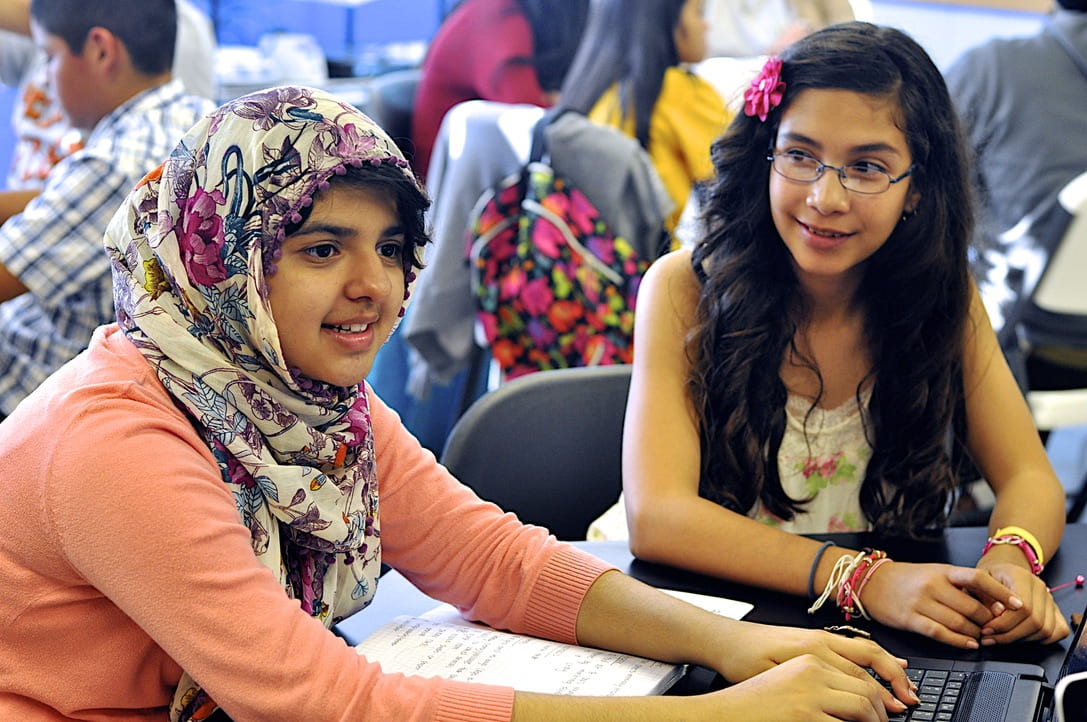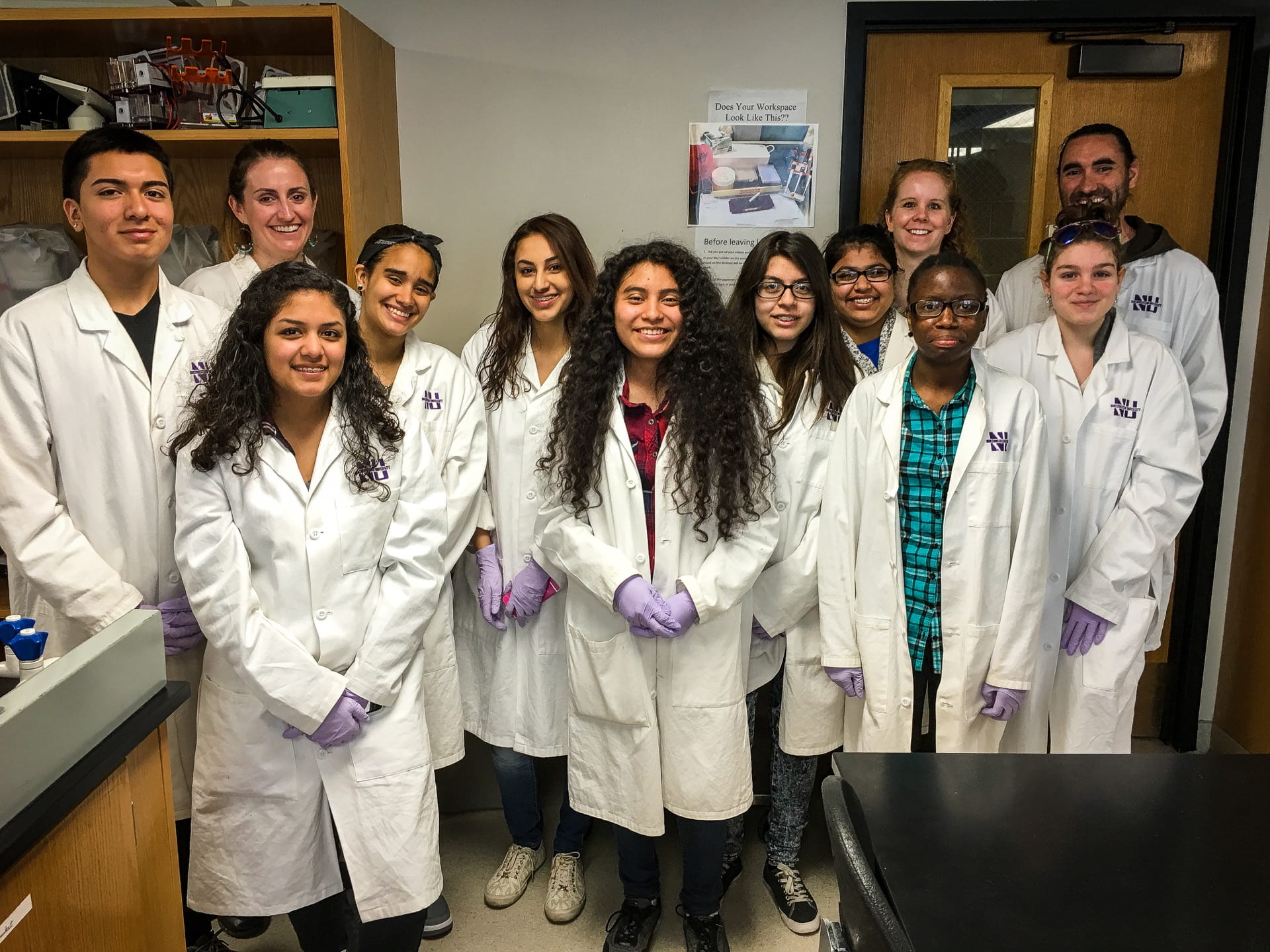What We do
SiS addresses authentic problems of practice identified by community partners
Our goals
1. Respond to community-based STEM education needs. “How can we help?” are the four words that guide our work. Our work takes place in the communities we support.
2. Train Northwestern researchers in principles of teaching, mentoring, and community engagement. Our research shows mentors who work with us carry these skills into their professional lives.
3. Close opportunity gaps by connecting underserved students with university scientists and authentic learning experiences.
How are we different?
Science in Society’s approach is grounded in the scholarship of engagement. This framework challenges historically antiquated models of universities generating new knowledge that flows one-way into society.
Instead, SiS develops mutually beneficial, intellectual engagement between university and community. In this way, both university and community play essential roles in advancing knowledge.
This approach leads to sustainable, effective partnerships.
Partnerships Bridging University and Community

Science Club
In 2007, SiS reached out to the Boys & Girls Clubs of Chicago to see how the university could support the Club’s mentoring mission. The Pedersen-McCormick Club in Chicago’s Uptown neighborhood was interested in developing a new STEM mentoring program. Teachers at two local Chicago schools, McCutcheon and Stewart, asked for new science learning programs for their middle school students focused on authentic student-driven experimentation. SiS partnered with both groups to develop Science Club – a novel, long-term mentoring program pairing students with STEM graduate student and postdoctoral mentors. The program has received more than $5 million in extramural funding.

Mather Science Explorers
The Chicago Public Schools (CPS) Science Director asked if it was possible to bring Science Club’s mentoring approach into the school dat. Research indicated 9th grade students of all abilities and at all CPS schools were dramatically underperforming, putting their longer-term academic futures at risk. Building off fundamental knowledge about STEM mentoring relationships, SiS designed a school-day mentoring program in collaboration with teachers and school leaders at Mather High School.
